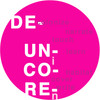OTHERARCHIVES
- No, Mr. Lion, No.
- Epistemicide: humiliated, erased, unborn
- Other Archives are Contrabando
- How to Build a Full Circle out of Breads and Teas and Kuruts?

No, Mr. Lion, No.
The romantic image of the “dusty archive” is also smuggled into the romantic image of sunlight, peace and quiet, and interesting discoveries from the past. Why smuggle? To reveal this sensation, one would have to look at the Venetian lions. It will take courage to go beyond the dominant narratives. To be critical of the production of knowledge. The experience of the following text invites us to consider the production of knowledge and archives critically. In the following it offers to start a search for alternative vessels of information, that may be well hidden in the mundanity of bread, tea or kurut.
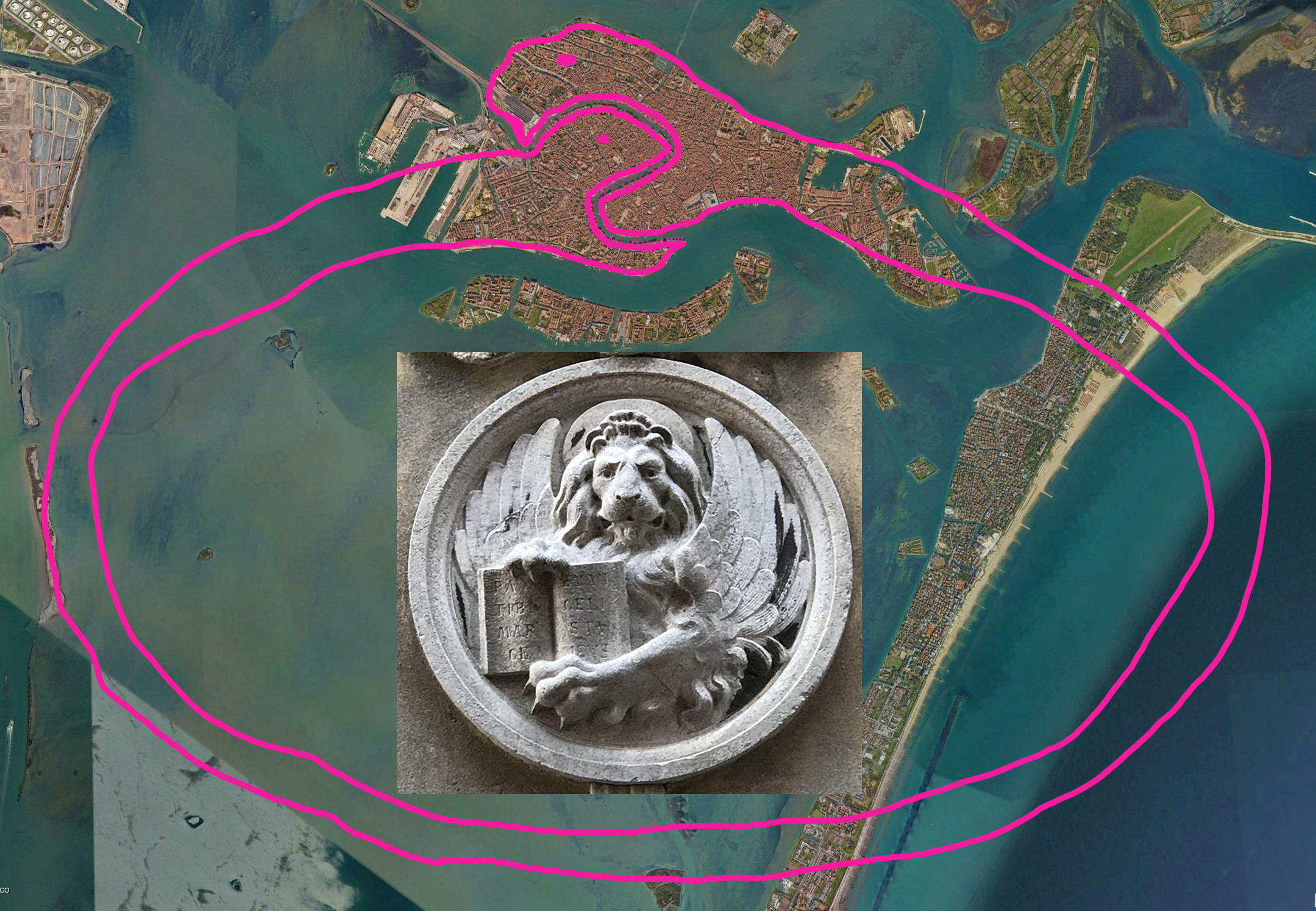
When one visits the former colonies of the Venetian Empire (for instance, the Slovenian city of Koper), one encounters everywhere the image of a lion with its paw pointing to a book with a text. This is a Christian text. The image as a whole refers to one of the first functions of the text — to deliver the requirements of the law and demand obedience. The imperial lion consolidates its power through the text. Reduced function of the Archive to ReadObey. The stone Venetian lion points to the text and insists that we read. Because people do obey the text. The letters of the law speak. The first text appeared on clay tablets — they were laws. The text gave orders. Legal language. The second function of the text was market relations. That’s how the life of this medium began. Socrates never wrote anything down, believing that writing weakens memory. Art, politics, communications, society all existed without text for a long time.
African languages became deterritorialized, thus contributing to creolization in the West. This is the most completely known confrontation between the powers of the written word and the impulses of orality. The only written thing on slave ships was the account book listing the exchange value of slaves.
― Édouard Glissant, Poetics of Relation
The discrimination of nonText by Text began a very long time ago. Gutenberg’s revolution was a great achievement on the one hand, but on the other, it opened the door to crimes of incredibly unimaginable unfathomable scale.
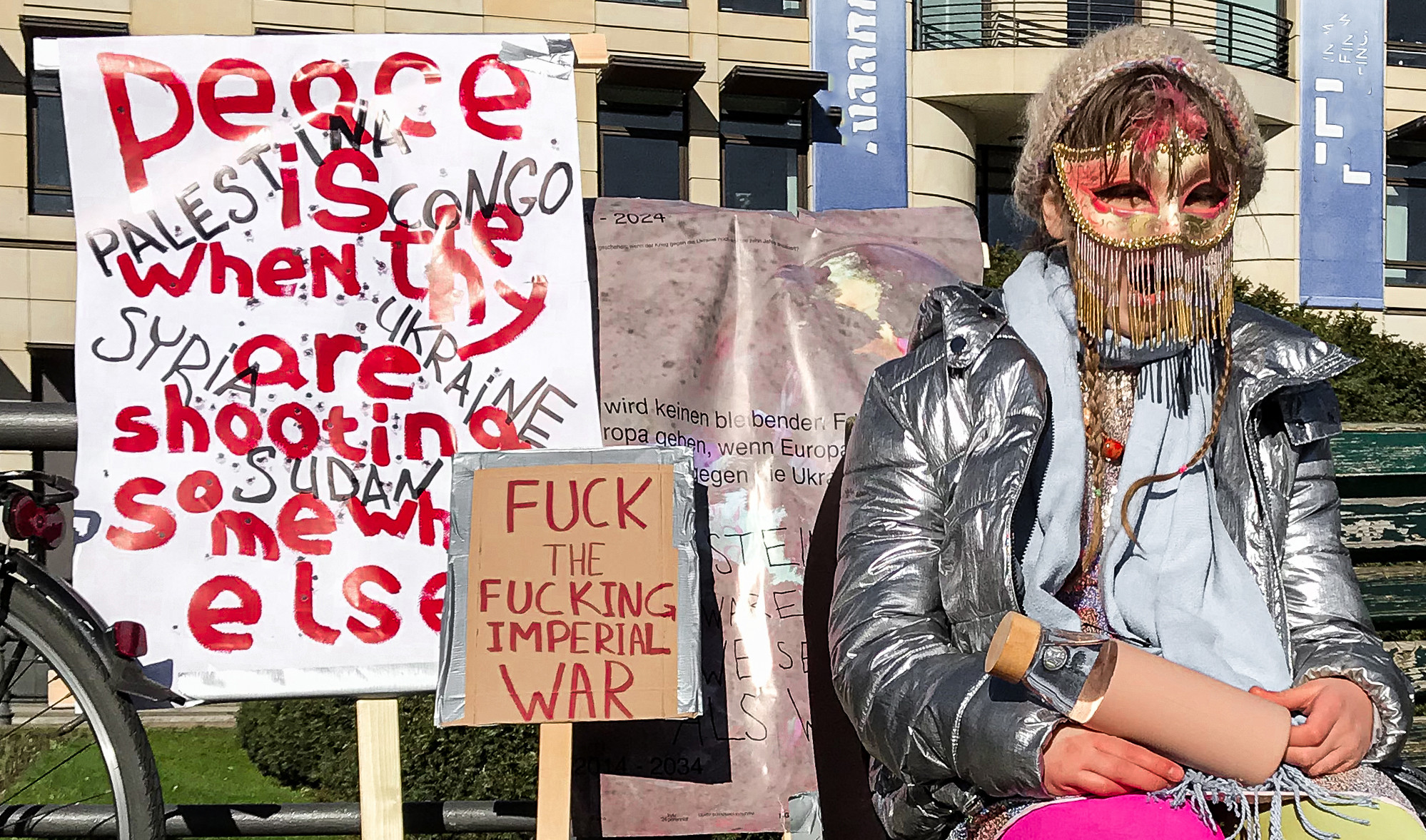
This is the first direction in thinking about the intersection between archives and smuggling. Archives are part of hierarchies and moreover, reinforce these hierarchies.
Archives, then, are not just about the documents or objects present, preserved, or altogether absent in an institution or holding cell of ostensible knowledge production. Instead, to speak about archives is to speak about “the exercise of a specific power and authority” that judges, discriminates, and selects, “granting a privileged status to certain written documents, and the refusal of that same status to others, thereby judged ‘unarchivable’, the archive is not a piece of data, but a status.
― Achille Mbembe
In a world of hiding colonial relations masking themselves as civilizing missions and selective human rights, archives also follow these unjust relations of power. Gabriel Laub’s phrase above can be rephrased closer to the topic of this text >>
Archive is when they are erasing somewhere else
How many erased archives are no longer available to us? The image of the Nazis burning books is a very recent image, and it is also distorted by certain hierarchies of power. Because Archives are not text only. This is a very European point of view on such things. Other Archives are collections of memories, of knowledges, of experiences lived and collected by communities over many thousands of years. And the holders of these collections are bodies, rituals, sounds, oral stories and legends, ways of doing things, ways of preserving food, weaving skills, and much more. Reducing the Archive to “peaceful texts on shelves” contrabandly legitimizes only this kind of archive and wipes out the memory of colonial brutality to other ways of remembering, preserving, living.
The archive is itself the result of an edited hegemonic narrative.
― Deanna Cachoian-Schanz
When the wind stirs, seeds scatter in all directions, heedless of borders. Over endless stretches of time, they continue to thrive beyond the lines drawn by human hands. If we delve into the essence of knowledge, we discover that ideas behave much the same—words, too, are boundless, transcending the limits imposed on them. Though housed in fragile bodies, knowledge remains swift, evading those who seek to suppress it. And to believe that one can easily extinguish certain forms of knowledge, good or bad, is, at best, a naïve hope. Thus those who manage to destroy the worlds of knowing make a major effort.
Epistemicide: humiliated, erased, unborn
Boaventura de Sousa Santos uses this word to describe hierarchies of archives — colonial dominant knowledge destroys as completely as possible the pieces of knowledge and memories of other cultures.
Unequal exchanges among cultures have always implied the death of the knowledge of the subordinated culture, hence the death of the social groups that possessed it. In the most extreme cases, such as that of European expansion, epistemicide was one of the conditions of genocide. The loss of epistemological confidence that currently afflicts modern science has facilitated the identification of the scope and gravity of the epistemicides perpetrated by hegemonic Eurocentric modernity […] dominant epistemologies have resulted in a massive waste of social experience and, particularly, in the massive destruction of ways of knowing that did not fit the dominant epistemological canon.
― Boaventura de Sousa Santos,
Epistemologies of the South:
Justice Against Epistemicide
In the space of the Soviet Union, this was exactly what was happening. Russian knowledge displaced any other knowledge and its holders. To be a Soviet person one had to become Russian — to speak Russian, to read Russian literature, to sing Russian songs. There is such an episode in the history of Soviet colonial epistemicide, in the 50s, choreographers from Moscow (from the center of the USSR metropolis) were sent to the periphery of the Soviet empire to create folk dance ensembles from scratch. The same exoticization and reconstruction occurred with folk costumes. Successfully destroyed archives began to be reconstructed by the metropolia for its own purposes. To borrow Margaret Tali’s words:
“the memory of the repressed groups in the context of neoliberal post-socialism in which history continues to reveal its suppressed sides resemble the bread that has turned into a bomb.”
This has happened in the face of two parallel processes: active repressions and active faking of the conventional forms of an archive. This included among other things erasure of images of people from official photos and the inclusion of protocols for never-existing events. Tali perfectly stresses how distrust of Soviet archives from the side of society combined with their power-status resulted in an ”explosive [character of] personal memories that threate[d] the archives outside the archives and appear[ed] in fictive narratives.” As a result partly experienced, partly fabricated memories about the past packed in a visual culture appeared to be, so Tali, the key to the understanding of the past experiences and giving them a long-awaited voice.
Other Archives are Contrabando
The intellectual traditions and social organizations through which working-class African Americans lived, understood, and changed their reality have typically emerged in spite of, and in opposition to, plantation powers. This conflict is one of the defining features of African American social thought. From the unique experience and position of the enslaved Black Southern working class there emerged a self-referential classificatory grid. […]This pillar of African American identity is […] the blues epistemology.
― Clyde Woods, Development arrested:
the cotton and blues empire of the Mississippi Delta
In cases of other injustices and corrupted power relations, life begins to bloom in the cracks of these hierarchies. This is what happens with archives — the Other Archives. Not in one region solely, but throughout diverse geographical bodies they have become contrabando. Dragged through hundreds of years by the sounds of the marimba, the dances, the poetry, the patterns of fabric, the tradition of growing and drinking tea, ways of preserving food, making bread and telling stories. An archive like Kurut not only tells stories, many times it has saved lives. Other Archives are directly related to life and are a vital necessity.
Other Archives are contrabando under the nose of dominating hierarchies
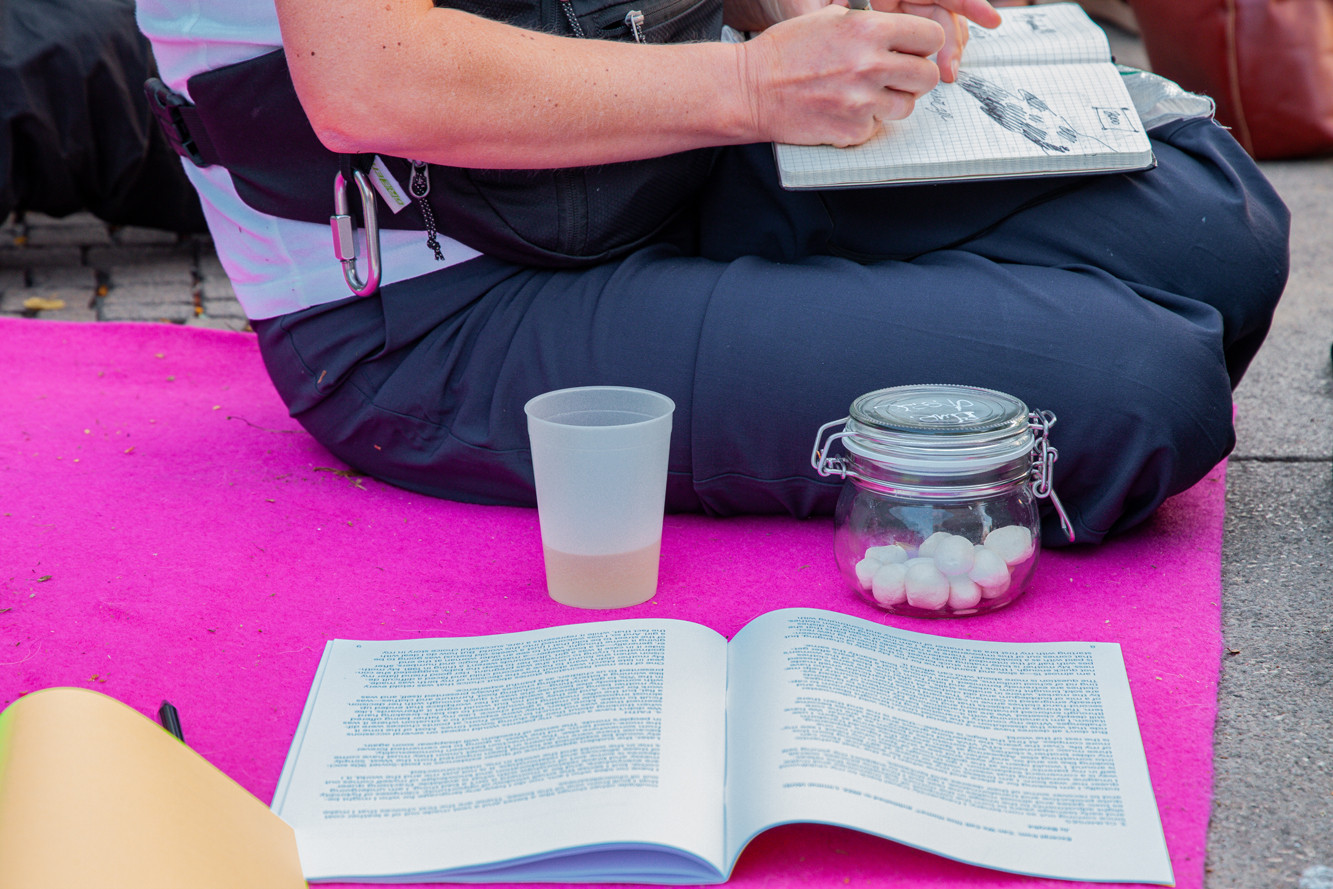
Курут [kurut] — salty, sour, tasty, solid, dry, white food. It can be kept for a long time. Put it in a чөнтөк [pocket], put it in a куржунг [basket], put it in a баштык [bag], wrap it in a жоолук [scarf], wrap it in a piece of чүпүрөк [fabric], and it appears to be a lifesaving food when you go on a long journey. In 1916, thousands of our people traveled a long way to China because of persecution by the Russian Empire. And kurut surely must have saved many lives. I would call it the golden [altyn] food in the palm of my hand.
― Altyn Kapalova
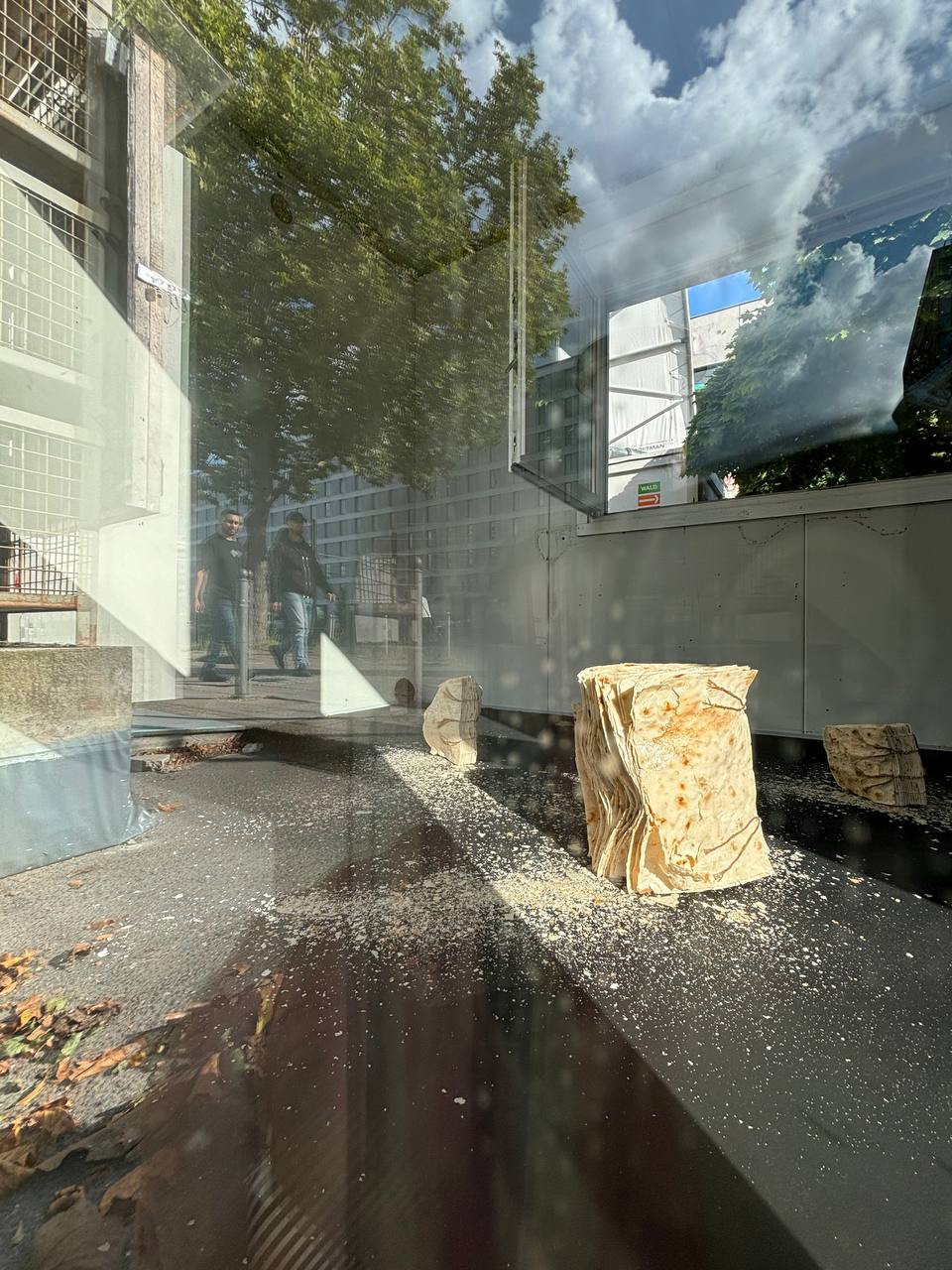
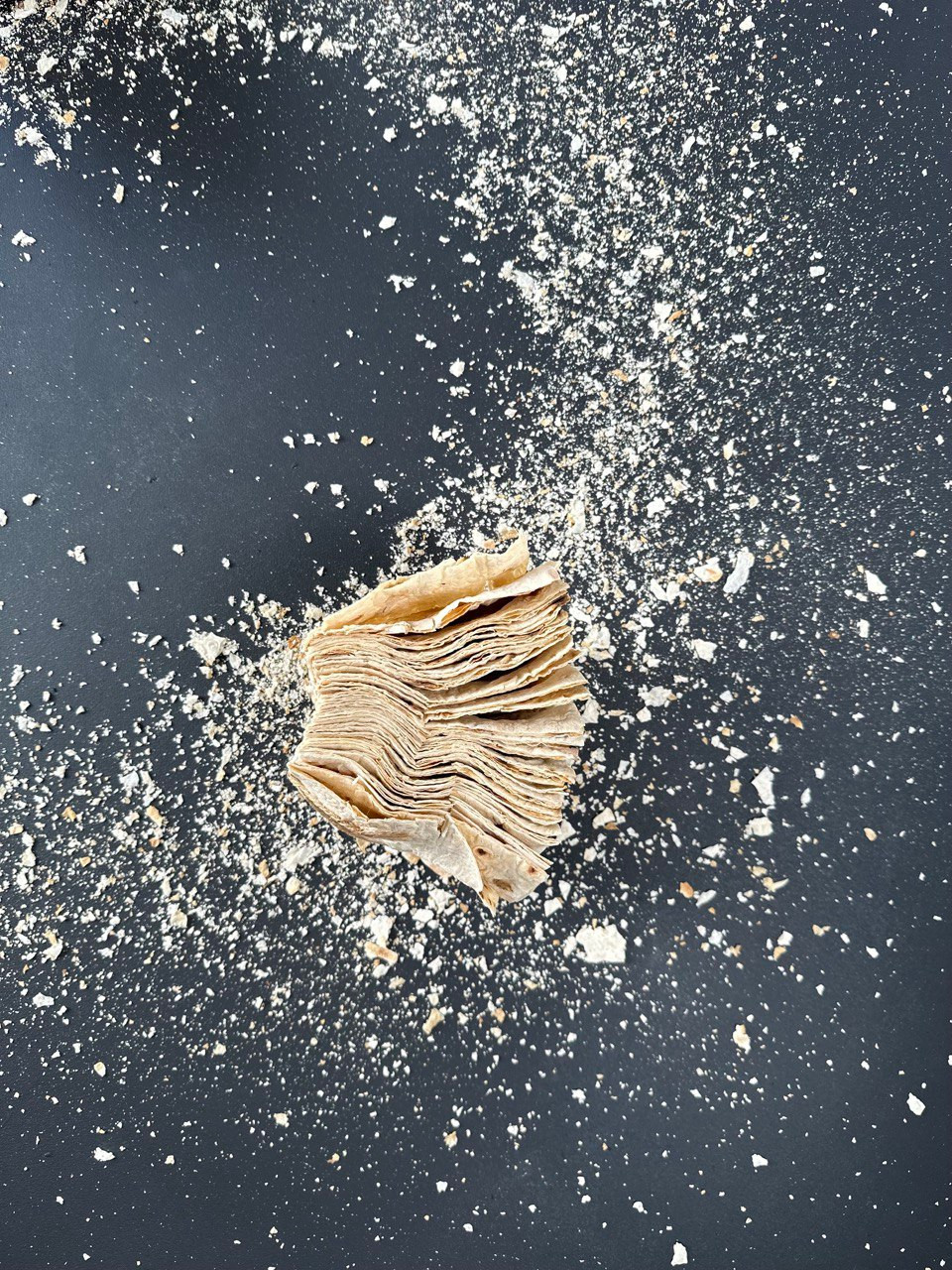
While thinking of alternative forms of archives, the example of the latest exhibition and a series of events organized by de_colonialanguage Collective in collaboration with Irina Denkmann and network Platform Co-Making Matters comes into play. The show “Pages of Ephemeral Chronicles” was initially thought at the crossroads of material and immaterial knowledge—of what Armenians carried with them through the horrors of genocide. Yet, the emotions, beliefs, and perspectives gathered there soon wove together a broader meditation of de_colonialanguage collective on other narratives, and forms of information passing. A more expansive landscape unfolded in the program, revealing how, and through what means, we preserve what matters to people.
Armenian artist Ani Ba, discovered her palette in traditional flatbread, Lavash. For three years, she has explored its forms in performances, bas-reliefs, and sculptures. For this exhibition, she crafted lavash books: Shurishkan (2023), Girq (2023), Urbatagirk (2023), and Vehamor Avetaran (2023). Resting upon black surfaces in the gallery, these precise replicas of spiritual Armenian manuscripts transformed the space into a time capsule, inviting visitors to reflect on traditions of food-making, gathering, and the preservation of a way of life.
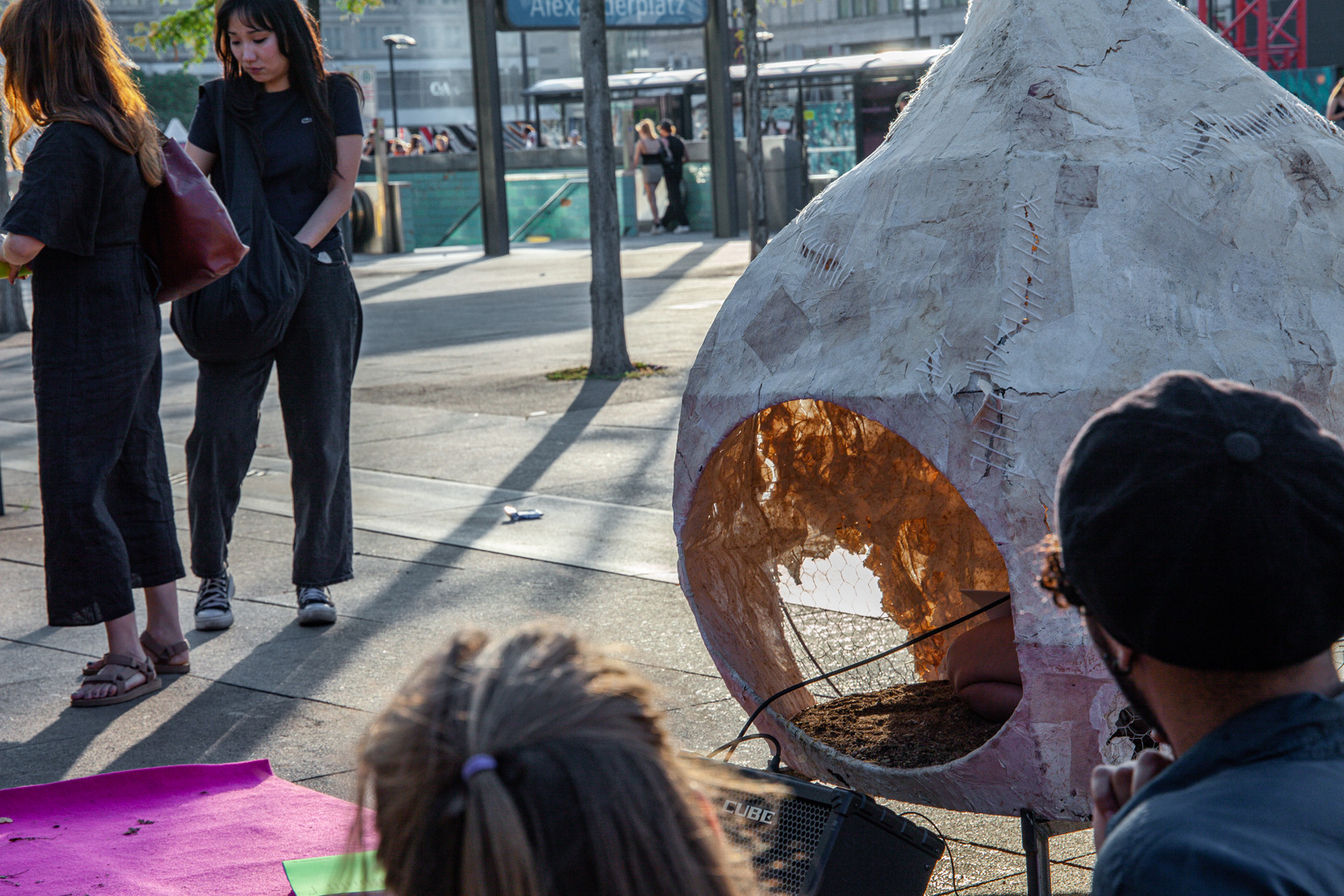
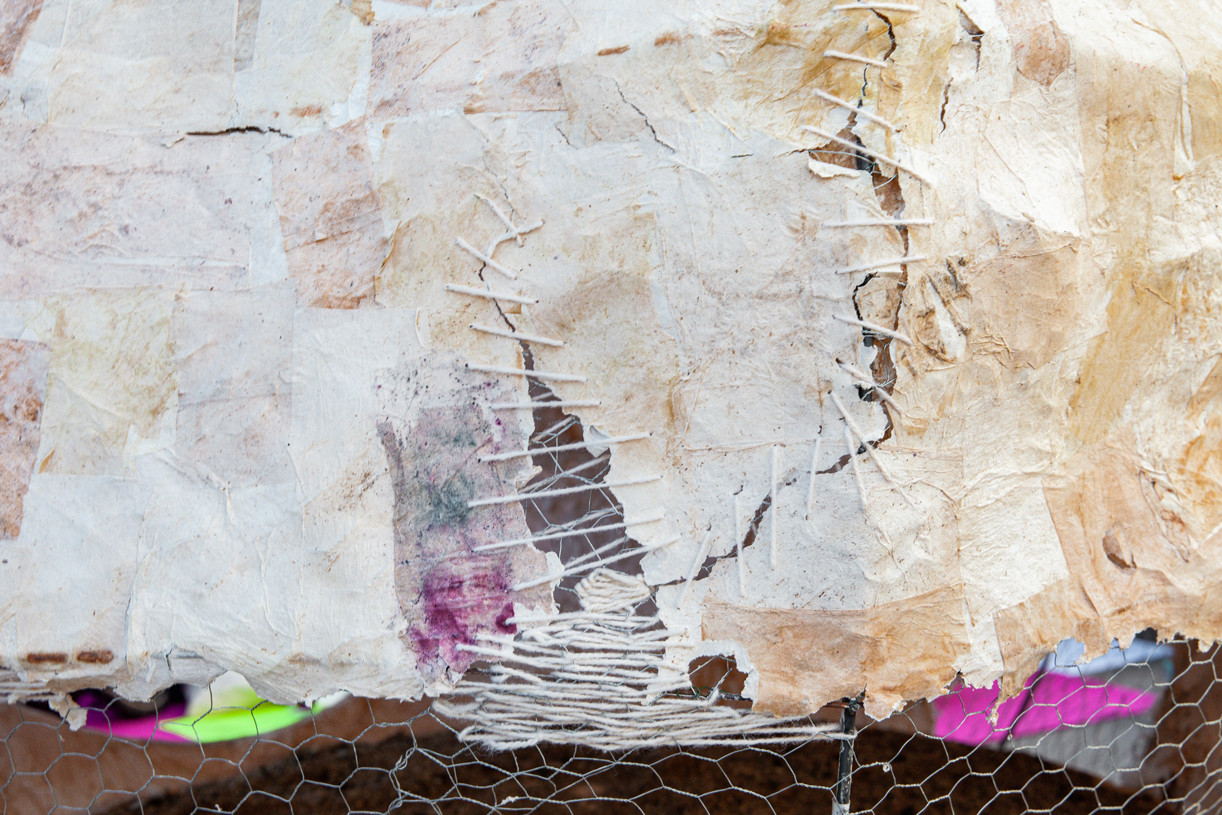
Revalation of knowledge as the process also breathed life into Asuman Kırlangıç’s sculptural work “360 ° or Dance of the Caterpillar” (2024). She built a cocoon capable of covering one human figure and opened it at Alexanderplatz as a space for voicing 12 re-membering stories of people who have ties to Armenia, Brazil, Chavash, unceded Gadigal land (also Sydney), Kyrgyzstan, Strunino, Turkey, Qazaqstan: Ani Ba, Ju Bavyka, Bakhyta Birkenova & Sabina Voetmann, Irina Denkmann, Benazir Ibraimova, Asuman Kırlangıç, Rabiga Marx, Moa Mayall, Ani Menua, Гюль Нар [Gul Nar], Marina Solnzewa, Nagehan Uskan through their birth, education, community connections and family history. Performative reading was supported by Family Ethnography initiative, run by Elmira Kakabayeva. Family Ethnography or How to Decolonize Your Writing is an online laboratory for female writers, who deal with family and oral history and decolonial perspectives. Fashioned from tea paper, the cocoon-space exposed all meanings of the plant to the societies it inhabit. Performers stepped into the installation to read privately, even in the chaos of the public square. A quiet connection was built, holding us together for two hours.
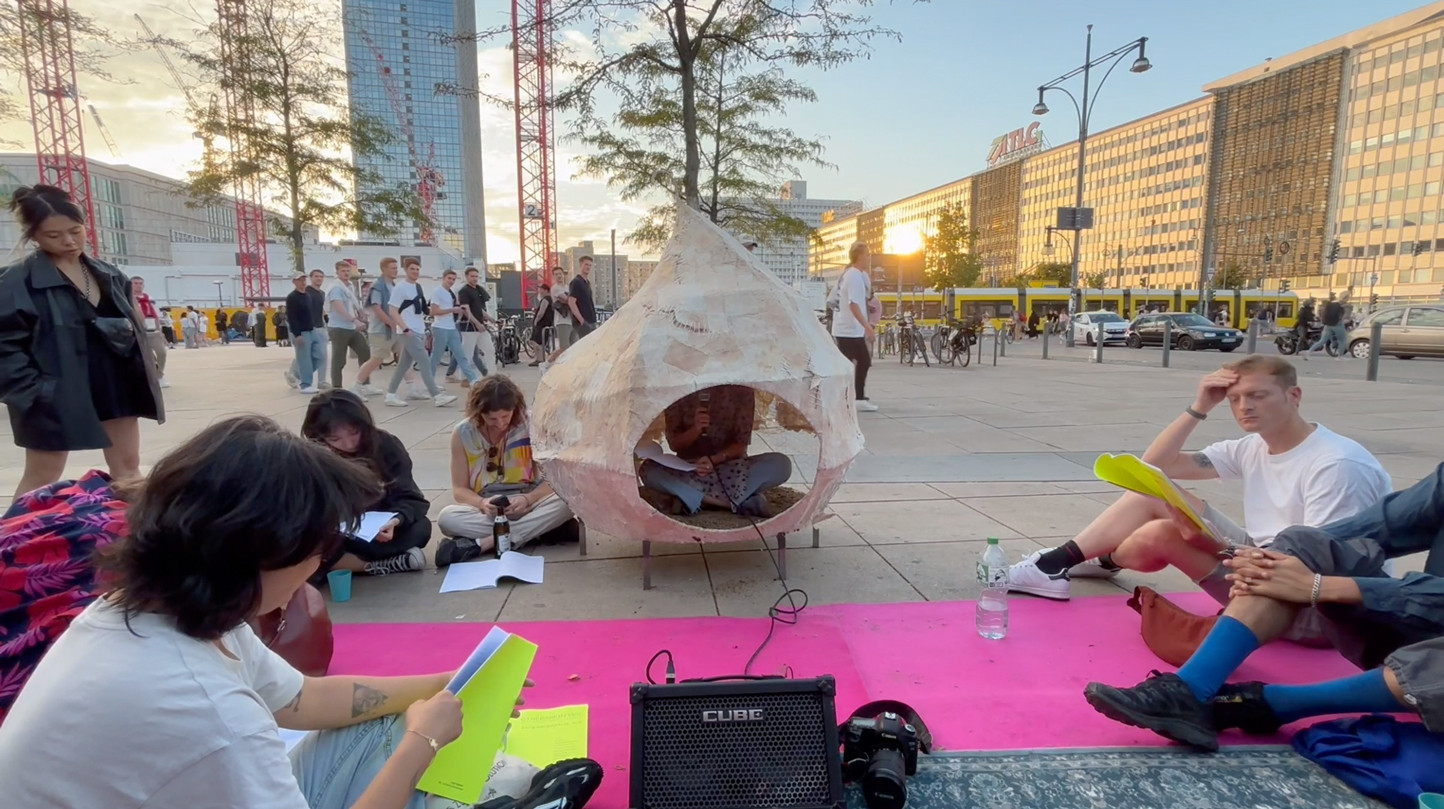
In between the exhibition and performance, there was another program point that functioned as a glue to difficult Armenian and Turkish histories. Long-time researcher of Armenian literature Ani Menua offered to read ԳԻՐՔ, ԱՆՎԵՐՆԱԳԻՐ [Girq-Anvernagir] (eng. A Book, Untitled) of Shushan Avagyan. But here again, the discussion of the book mostly consisted of sharing the association cloud. With the help of Nearby Reading method the de_colonialanguage collective practiced for several months already, worlds behind each pair of eyes stepped into the foreground. The book depicted protagonists recalling experiences of loss during the Armenian genocide and repressions of World War II. It was crucial to see that for some readers it came as a repetition of the theme and for others as a condition of everyday existence.
![ԳԻՐՔ, ԱՆՎԵՐՆԱԳԻՐ [Girq-Anvernagir] (eng. A Book, Untitled) by Shushan Avagyan, translated by Deanna Cachoian-Schanz](https://fastly.syg.ma/imgproxy/nAzB5dMJKQj-DUFqWxYTr4pze2C-UE-G_yy8g8vSMVY/rs:fit:::0/aHR0cHM6Ly9mYXN0bHkuc3lnLm1hL2F0dGFjaG1lbnRzL2NjNTdmMThkYzEyNWYwM2Y3NDdhZjZiMTYzOTZiY2ZhOTZlYWI4ODMvc3RvcmUvMmU0OWJiNDc4OTRjMzU0ZDkyZjE4YjI1NzU2YmQyZDZjMjYyOWVjZmQ2MDJmZTEyYTZmMDI0YjhhZDg0L2ZpbGUuanBlZw)
The fabula is equally true for invisible stories of Lavash and tea. Though both were freshly crafted in Turkey and Armenia, these materials in the eyes of some beholders are still saturated with the weight of history. In the exhibition “Pages of Ephemeral Chronicles” two artists created a tender engagement with stories and memories and thus met each other on their own terms while avoiding socio-political burdens. Over the meaning of everyday objects of food, they came to a common ground of the wish for well-being. Their ephemeral knowledge, captured in fleeting moments, became tangible—shared through food, voices, and scent.
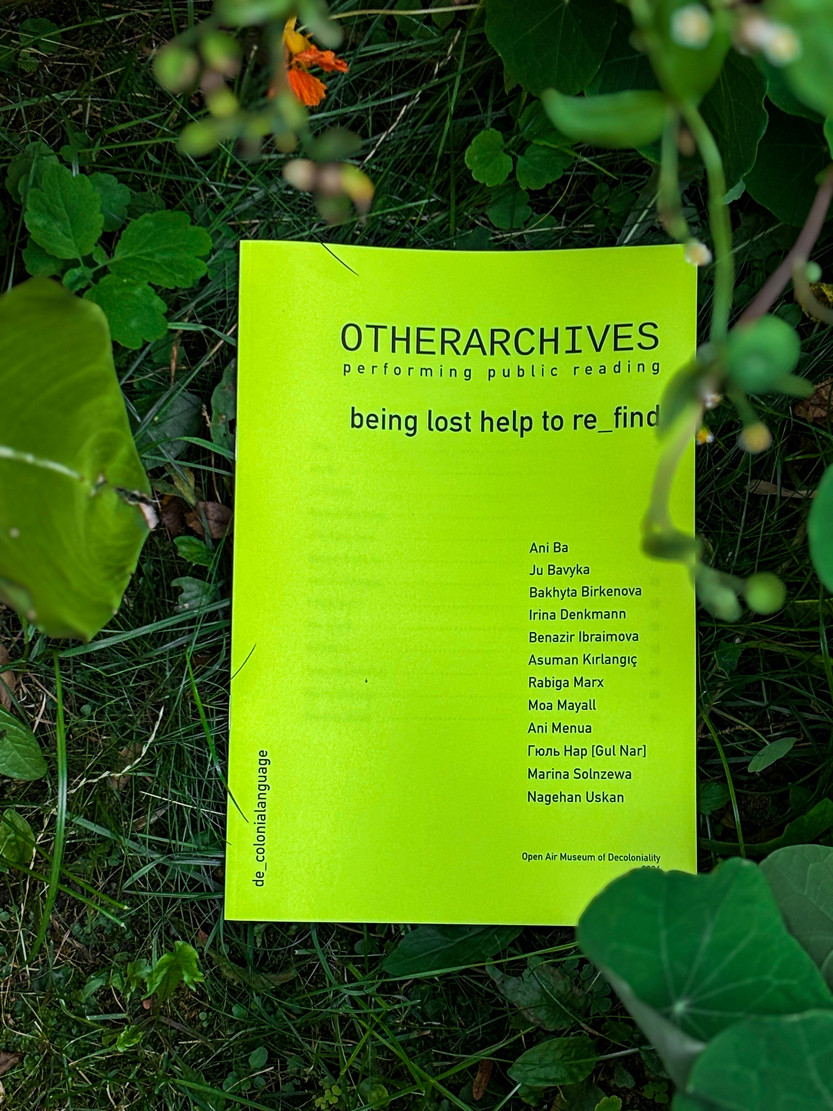
Other Archives are happening all around and in a diverse way. They sprout up here and there. Not reduced to colonial notions of the world and demands to obey them Other Archives are contrabando. It is memory, knowledge, experience smuggled in against the will of corrupted colonial hierarchies of power. It is the natural human capacity to remember, to keep and to share. Other Archives have survived incredible repression. And their existence raises questions for all of us — what is wrong with this world that the real Other Archives are contrabando?
For those who chase and hold alternative forms of information one vivid question stays permanently on display:
How to Build a Full Circle out of Breads and Teas and Kuruts?
the text is written-mixed in four hands
by Irina Denkmann and Denis Esakov
using the method of generosity and curiosity
